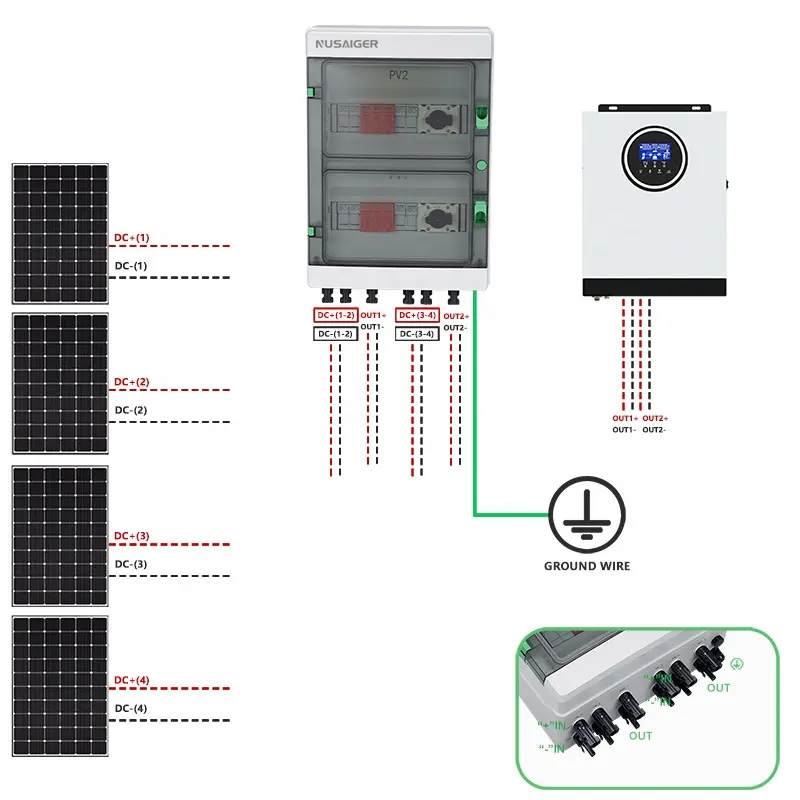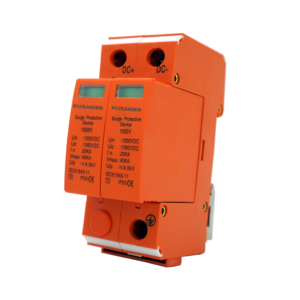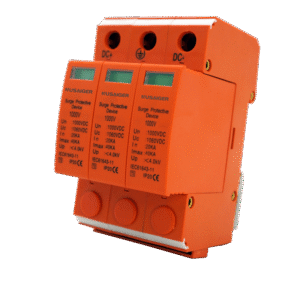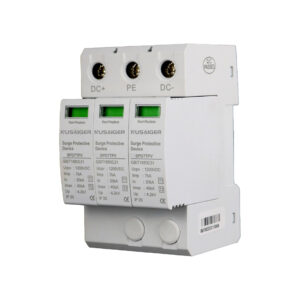Integrating PV Combiner Boxes in Off-Grid Solar Systems: Challenges and Solutions
Off-grid solar systems, which operate independently from the utility grid, require robust and reliable components to ensure uninterrupted power supply. PV combiner boxes play a crucial role by safely consolidating multiple solar panel strings and managing power flow to battery banks and inverters. However, off-grid setups pose unique challenges that influence combiner box design and integration.
1. Unique Requirements of Off-Grid Systems
Off-grid solar installations often face harsher operating conditions, including wider voltage fluctuations, variable load demands, and limited maintenance access. This necessitates combiner boxes that can handle higher current ratings, provide enhanced protection, and support flexible configurations.
2. Compatibility with Battery Storage
Unlike grid-tied systems, off-grid setups rely heavily on batteries. Combiner boxes must be compatible with charge controllers and battery management systems, often incorporating DC disconnects and fuses rated for battery voltage and current characteristics.
3. Enhanced Protection Features
To protect sensitive components, off-grid combiner boxes should include robust overcurrent protection, surge arresters tailored for remote locations, and sometimes arc fault detection devices. These features reduce the risk of system failures in isolated environments.
4. Modular and Scalable Design
Off-grid systems frequently expand as energy needs grow. Modular combiner boxes that allow adding or removing input strings simplify scalability and maintenance. Clear labeling and documentation also aid troubleshooting in remote areas.
5. Environmental and Durability Considerations
Remote off-grid sites may expose equipment to extreme temperatures, dust, moisture, or wildlife interference. Weatherproof enclosures with high IP ratings, corrosion-resistant materials, and secure locking mechanisms are critical to ensure longevity.
6. Communication and Monitoring Integration
Smart combiner boxes with monitoring and communication capabilities enable remote status checks, fault detection, and performance optimization, reducing the need for onsite visits and minimizing downtime.
Conclusion
Integrating PV combiner boxes in off-grid solar systems requires addressing specific technical and environmental challenges to ensure safe, efficient, and reliable power delivery. By choosing combiner boxes designed for off-grid conditions, incorporating advanced protection and monitoring, and planning for scalability, installers and system owners can maximize system uptime and return on investment.



